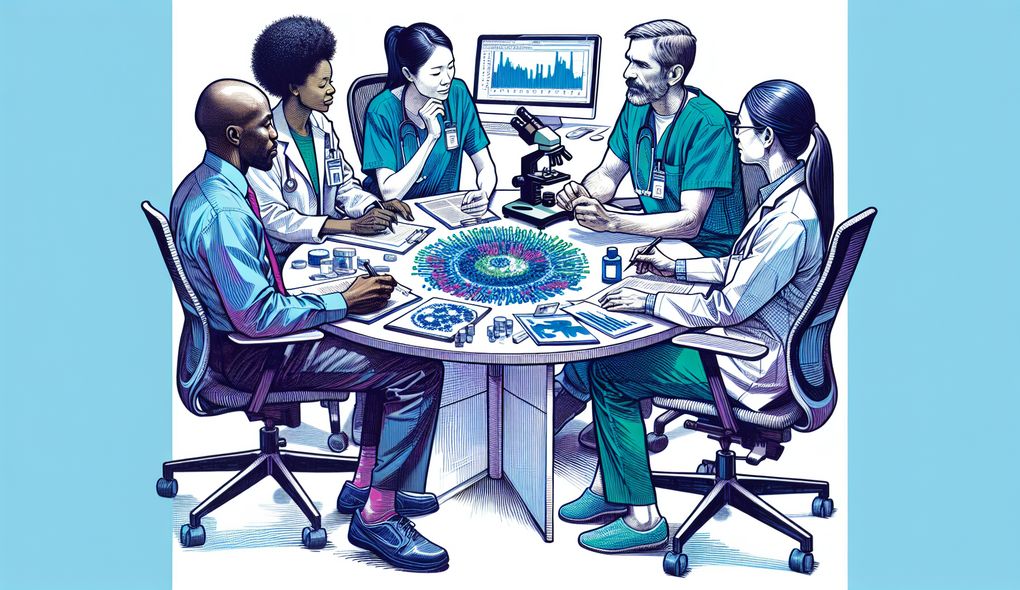Can you explain the importance of adhering to Good Clinical Practice (GCP) guidelines in clinical research?
INTERMEDIATE LEVEL

Sample answer to the question:
Adhering to Good Clinical Practice (GCP) guidelines is crucial in clinical research because it ensures the safety and well-being of study participants and the integrity of the data collected. GCP guidelines outline ethical and scientific standards that must be followed throughout the research process. By adhering to these guidelines, researchers can protect the rights and welfare of participants, minimize bias, and produce reliable and valid results. Compliance with GCP guidelines also helps to maintain the credibility of the research and ensures that it meets regulatory requirements. Overall, GCP guidelines are essential in maintaining the highest standards of quality, ethics, and integrity in clinical research.
Here is a more solid answer:
Adhering to Good Clinical Practice (GCP) guidelines is of utmost importance in clinical research. These guidelines serve as a framework for ensuring the safety, well-being, and rights of study participants. By following GCP guidelines, researchers can implement measures to minimize risks and ensure proper informed consent procedures. GCP guidelines also emphasize the importance of maintaining data integrity and accuracy. This involves proper documentation, timely and accurate data collection, and strict adherence to protocols. Non-compliance with GCP guidelines can lead to compromised participant safety, unreliable data, legal implications, and loss of public trust. Additionally, GCP guidelines ensure that the research follows ethical standards and meets regulatory requirements. It is essential for clinical research coordinators to have a deep understanding of GCP guidelines and their practical application to ensure the success and integrity of clinical trials.
Why is this a more solid answer?
The solid answer highlights the importance of GCP guidelines in ensuring participant safety, data integrity, and adherence to ethical and regulatory standards. It provides specific details about the measures taken to minimize risks and maintain data accuracy. The answer also mentions the implications of non-compliance with GCP guidelines, including legal issues and loss of public trust. However, it could further improve by discussing how effective communication plays a role in adhering to GCP guidelines and facilitating collaboration between stakeholders.
An example of a exceptional answer:
Adhering to Good Clinical Practice (GCP) guidelines is paramount in clinical research because it safeguards the rights and well-being of study participants and upholds the integrity of research data. GCP guidelines establish a set of ethical and scientific principles that guide the conduct of clinical trials. One of the primary goals of GCP is to protect the rights and safety of participants. This involves obtaining informed consent, ensuring patient confidentiality, and monitoring participant health throughout the study. GCP also emphasizes the importance of data integrity by outlining procedures for accurate data collection, verification, and maintenance. This ensures that the results obtained are reliable and unbiased. Compliance with GCP guidelines is not only ethically sound but also essential for regulatory approval. Regulatory bodies, such as the FDA, require adherence to GCP guidelines to ensure patient safety and hold researchers accountable. In addition, non-compliance with GCP guidelines can have severe consequences, including legal actions, reputational damage, and loss of funding. Consequently, clinical research coordinators must possess a detailed understanding of GCP guidelines and use them as a foundation for their work. Effective communication is also crucial in adhering to GCP guidelines. Coordinators need to collaborate with multiple stakeholders, including medical staff, research investigators, sponsors, and regulatory bodies. Open and transparent communication facilitates smooth study operations, allows for prompt resolution of issues, and ensures that everyone involved is aware of their responsibilities. By upholding GCP guidelines, clinical research coordinators not only contribute to the advancement of medical knowledge but also provide a safe and ethical environment for study participants.
Why is this an exceptional answer?
The exceptional answer provides a comprehensive explanation of the importance of adhering to GCP guidelines in clinical research. It emphasizes the protection of participants' rights, safety, and confidentiality, as well as the importance of data integrity and accuracy. The answer also highlights the regulatory requirements and consequences of non-compliance with GCP guidelines. Furthermore, it recognizes the role of effective communication in adhering to GCP guidelines and facilitating collaboration between stakeholders. Overall, the exceptional answer covers all the evaluation areas and provides extensive details, making it a strong response to the question.
How to prepare for this question:
- 1. Familiarize yourself with Good Clinical Practice (GCP) guidelines and their practical application in clinical research.
- 2. Understand the ethical considerations and regulatory requirements involved in clinical trials.
- 3. Stay updated with the latest developments in GCP guidelines and any changes or updates in regulatory requirements.
- 4. Reflect on your past experiences in clinical research and identify specific examples that demonstrate your adherence to GCP guidelines and promotion of participant safety and data integrity.
- 5. Practice effective communication skills, as it is crucial for collaborating with various stakeholders in clinical research.
- 6. Prepare for potential follow-up questions related to GCP guidelines and their application in specific research scenarios.
What are interviewers evaluating with this question?
- Knowledge of GCP guidelines
- Understanding of participant safety and data integrity
- Awareness of ethical standards and regulatory requirements
- Ability to communicate effectively

